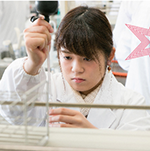Iwate Prefectural University Morioka Junior College is a public junior college located in Morioka City, Iwate Prefecture, Japan, established in 1948. The school is operated by Iwate Prefectural University and is committed to cultivating students with professional knowledge and skills, providing high-quality education and a rich campus life. The following is a detailed introduction to Iwate Prefectural University Morioka Junior College, including its history, subject settings, educational characteristics, campus facilities and other information.
Basic information Name: Iwate Prefectural University Morioka Junior College (Japanese: Iwate Prefectural University Morioka Junior College / いわてけんりつだいがくもりおかたんきだいがくぶ) English name: Iwate Prefectural University Morioka Junior College Address: No. 18-8, Ueda-3-chome, Takizawa Village, Morioka City, Iwate Prefecture Date of establishment: 1948 Type: Public Junior College Historical evolution 1948: Iwate Prefectural University Morioka Junior College Department was established.
1958: The Arts and Crafts Department further developed and became an independent discipline.
1962: The Department of Home Economics added two majors, "Clothing" and "Food", enriching the course content.
1963: Morioka Junior College was renamed the current Iwate Prefectural University Morioka Junior College, emphasizing its educational status in the prefecture.
After 2000: Further improve the subject settings and educational facilities to improve students' employment competitiveness.
After 2010: Continue to promote educational reforms, expand international exchange programs, and enhance the school's reputation and influence.
Subject Settings
Iwate Prefectural University Morioka Junior College has multiple subjects covering home economics, art and crafts and other fields. The specific subject settings are as follows:
Home Economics
Clothing Major: Cultivate professionals with clothing design and production skills.
Food Major: Cultivate professionals with food nutrition and cooking skills.
Art and Craft Department
Art Major: Cultivate professionals with artistic creation capabilities such as painting and sculpture.
Craft Major: Cultivate professionals with craft production skills such as ceramics and woodworking.
Educational Features
Practical education: Emphasizes the combination of theory and practice, provides rich internships and practical activities, and helps students accumulate practical work experience.
Small class teaching: Adopts a small class teaching model to ensure that every student can get full attention and guidance.
Career support: There is a special career guidance center to provide services such as career planning, employment consultation and internship recommendation.
International education: Actively promote international education, establish cooperative relations with universities in many countries, and provide overseas exchange programs.
Personality cultivation: The school focuses on the all-round development of students, and cultivates students' leadership and teamwork skills through various extracurricular activities and club activities.
Campus facilities
Library: It has rich book resources and a modern reading environment.
Laboratory: Equipped with advanced experimental equipment to support scientific research and practical teaching.
Training room: There are multiple training rooms to provide a real practical environment.
Sports facilities: Including gymnasiums, sports fields, etc., to promote students' physical and mental health.
Student dormitories: Provide comfortable accommodation environment to facilitate students' life and study.
Research center
Home economics research center: Research various issues in the field of home economics and provide support for family life.
Art and Craft Research Center: Research various issues in the field of art and crafts, and provide support for artistic creation and craft production.
Student Activities
Club Activities: There are various student clubs covering academic, cultural, sports and other fields.
Volunteer Activities: Encourage students to participate in community service and social welfare activities to cultivate a sense of social responsibility.
Admission Requirements
Entrance Examination: Usually includes written examination and interview. Please refer to the school's official website for specific requirements and procedures.
International Students: International students are accepted for application, and they must meet language proficiency and other relevant requirements.
Contact Information
Tel: +81-19-622-3111
Fax: +81-19-622-3112
Email: admission@iwate-pu.ac.jp
School Motto
Spirit of the School: Freedom and Creation
Educational Philosophy: Cultivate students with professional knowledge and skills, as well as rich personalities.
Employment Situation
Employment Rate: The employment rate of graduates from Iwate Prefectural University Morioka Junior College is high, and many graduates have found satisfactory jobs in the fields of home economics, art and crafts.
Notes
Reputation: Iwate Prefectural University Morioka Junior College enjoys a good reputation in Iwate Prefecture and throughout Japan, especially in the fields of home economics and arts and crafts.
Further study: Graduates can choose to continue their studies at undergraduate or graduate schools, or directly enter the workplace.
The above is a basic introduction to Iwate Prefectural University Morioka Junior College. If you have more specific questions or need detailed information, it is recommended to visit the school's official website or contact the relevant department of the school directly.
-
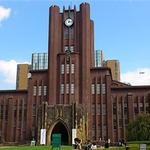
The University of Tokyo
-
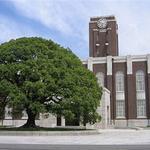
Kyoto University
-
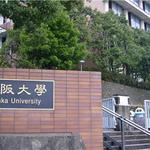
Osaka University
-
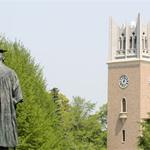
Waseda University
-
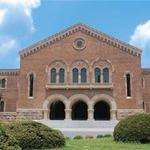
Hitotsubashi University
-
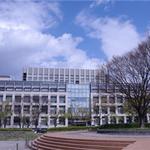
Nagoya University
-
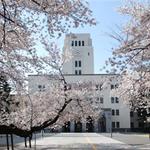
Tokyo Institute of Technology
-
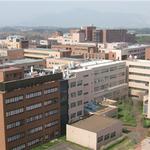
University of Tsukuba
-

Keio University
-
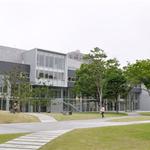
Tohoku University
-

Mesoamerican University
-

Istmo University
-

Mariano Galvez University of Guatemala
-

Regional University of Guatemala
-

Galileo University
-

Francisco Marroquín University
-

Rafael Landívar University
-

University of the Valley of Guatemala
-

University of San Carlos of Guatemala
-

Technological Institute of Tlaxcala Plateau
-

Golfo University
-

Technological University of South Sonora
-

Technological University of Huejotzingo
-

Tizimín Institute of Technology
-

Chilpancingo Institute of Technology

